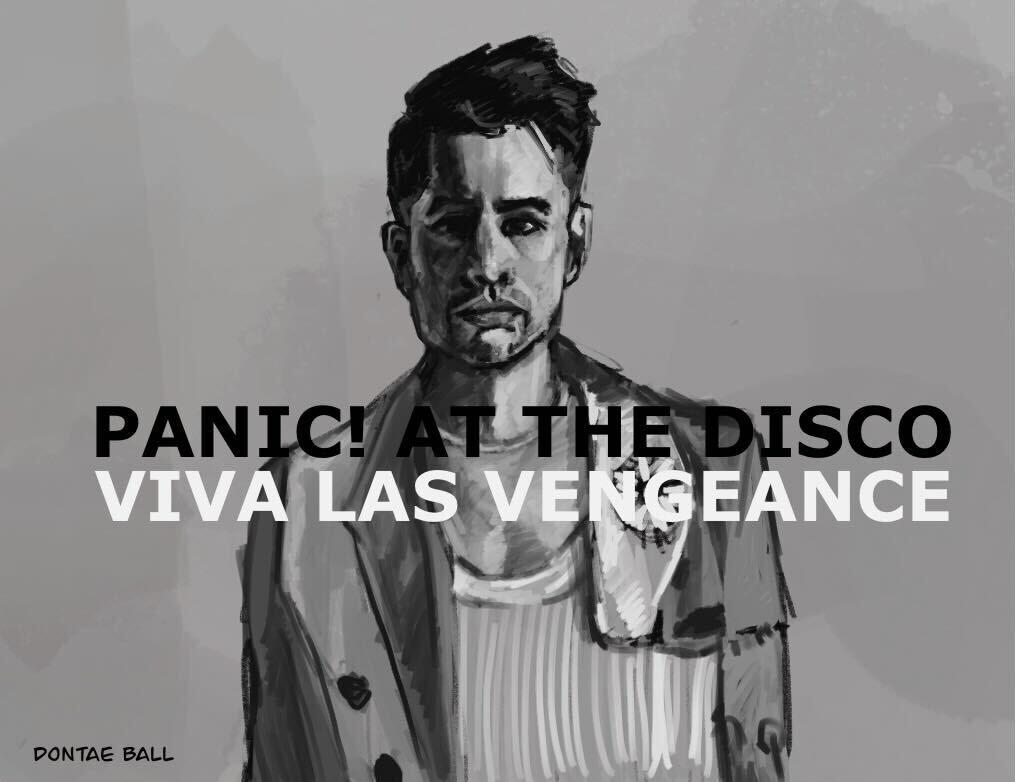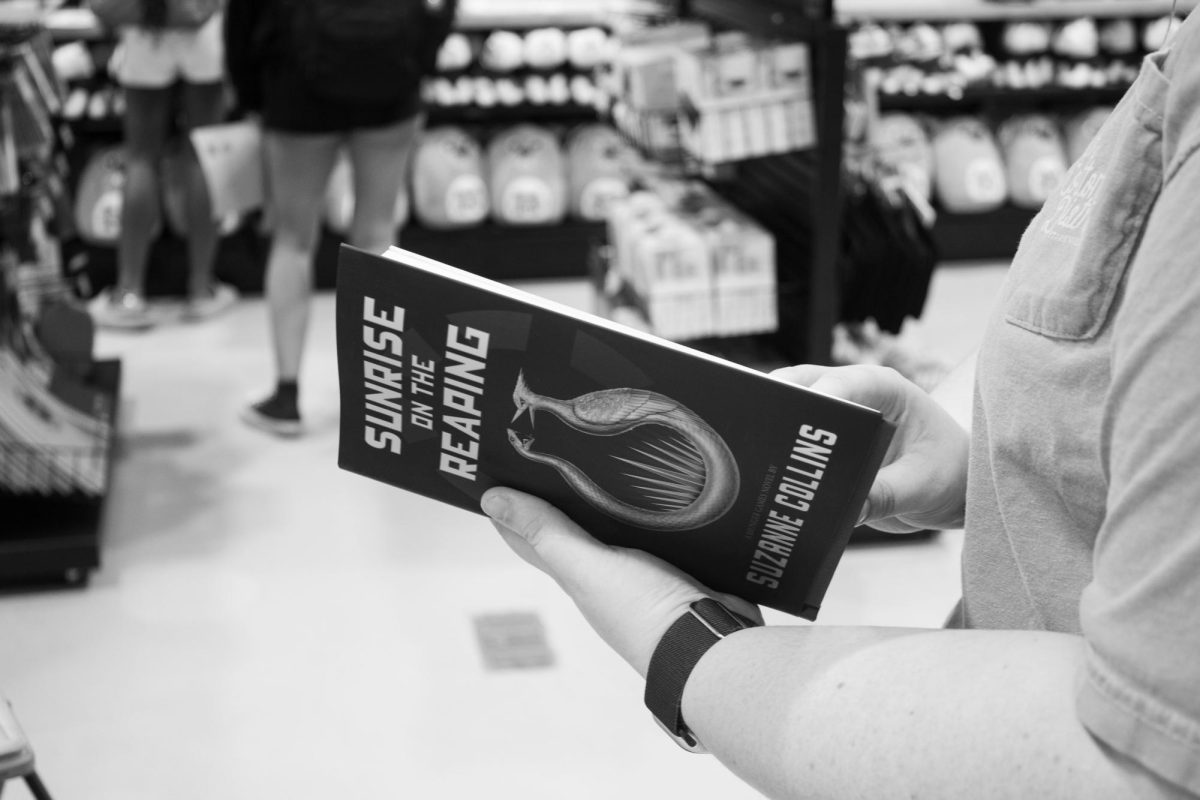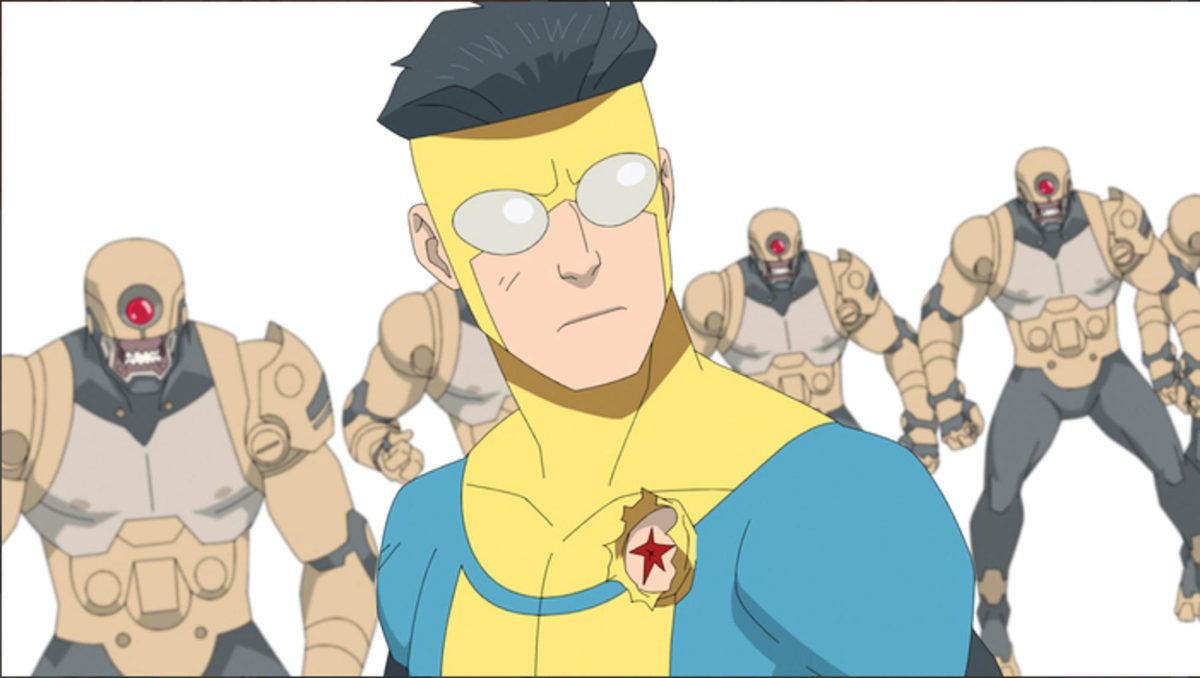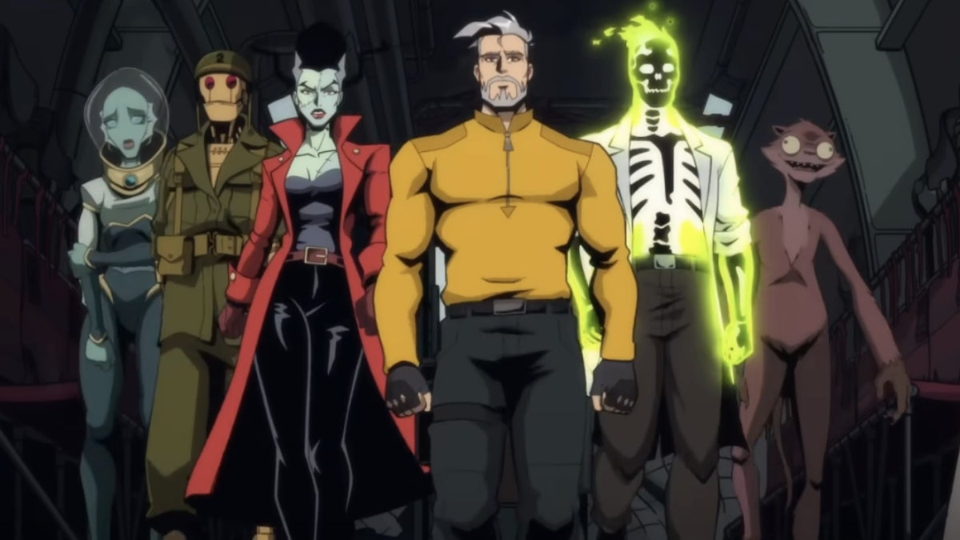There is no right way to make a rock album; strong guitar riffs, upbeat drums and powerful lyrics can typically result in a great record.
Somehow, Panic! At The Disco found the wrong way to make a rock album.
With all original members except frontman Brendon Urie leaving the band over the years, Panic! has become Urie’s mediocre solo project rather than the rock band that put out hits like “I Write Sins Not Tragedies” and “Death of A Bachelor.”
In Panic! At The Disco’s seventh studio album, “Viva Las Vengeance,” Urie attempts to tell a story of growing up in Las Vegas while finding love, heartbreak, fame and burnout.
The opening and titular track, “Viva Las Vengeance,” finds Urie alluding to his career as a “dead man walking.” Much of his current success pales in comparison to the band’s former glory.
“Local God” also comments on this idea. In Las Vegas, the band rose to fame and never paid their dues in the industry, leading many local bands to resent them. As Urie watches his fame decline, he is grateful that he will at least be a “local god” in his hometown.
In the titular track, Urie sings “shut up and go to bed” to a young person desiring a life filled with sex, drugs and rock and roll— alluding to his younger self. His fear of becoming a washed-up celebrity is a recurring theme and trickles its way throughout the album.
Track two, “Middle of a Breakup,” is about a relationship he knows will fail. The lyrics are immature and creepy from 34-year-old Brendon, especially after allegations of Urie’s sexual harassment, assault and racism came to light in recent years.
“Don’t Let The Light Go Out” takes an unexpected turn from the edgy tracks before and is the album’s most sincere song. It directly contrasts the doomed relationship featured in the second track as Urie sings about his lover’s death. Once she dies, he is left wondering who will save him from the tight grasp his luxurious lifestyle has over him.
The song may also be about Ryan Ross, the band’s former guitarist who left in 2009 due to creative differences with Urie. While Urie focused on becoming famous, Ross focused on making great music.
“Star Spangled Banger,” the album’s fifth track, is a terrible attempt at an outcast anthem. It wishes it could be Kim Wilde’s “Kids of America” and Lorde’s “Royals” combined into something worth a listen.
“God Killed Rock And Roll” gives insight into Urie’s feelings toward his career’s downfall. While the glamour of Las Vegas has dulled, listeners learn about this lifestyle’s correlation to substance abuse as Urie repeats, “What a perfect day to fly away.”
In both “Say It Louder” and “Super Soaker,” he comments on the people who have used Urie for his name and money and the dark path he went down. He feels little remorse for those he disturbed with his substance abuse, like a child crying for attention.
“Sad Clown” is the most theatrical track on the album. His career is destined to fail like the ending of a European tragedy, and he feels like a clown putting on a show for his remaining fans. However, he feels abandoned by those who left him. Throughout the song, he repeats, “Vincero,” translating to, “I will win,” in Italian.
He believes he is competing with the band’s former hits, and Urie hopes to emerge victorious and gain the fame he prioritizes.
The closing track depicts a celebrity acknowledging his career is ending, so there is no need to keep a pristine image. “Do It To Death” symbolizes how he will die trying to find satisfaction in the Las Vegas lifestyle, a stable relationship, lack of friends and life before substance abuse.
Brendan Urie tried his best to tell a tragedy in the name of rock and roll, but the real tragedy was how shallow Viva Las Vengeance was. The album depicts Urie’s struggles of maintaining a career so far gone while he is parading the corpse of what Panic! At The Disco used to be.
Album review: ‘Viva Las Vengeance’ is a short-lived mess
0
More to Discover














